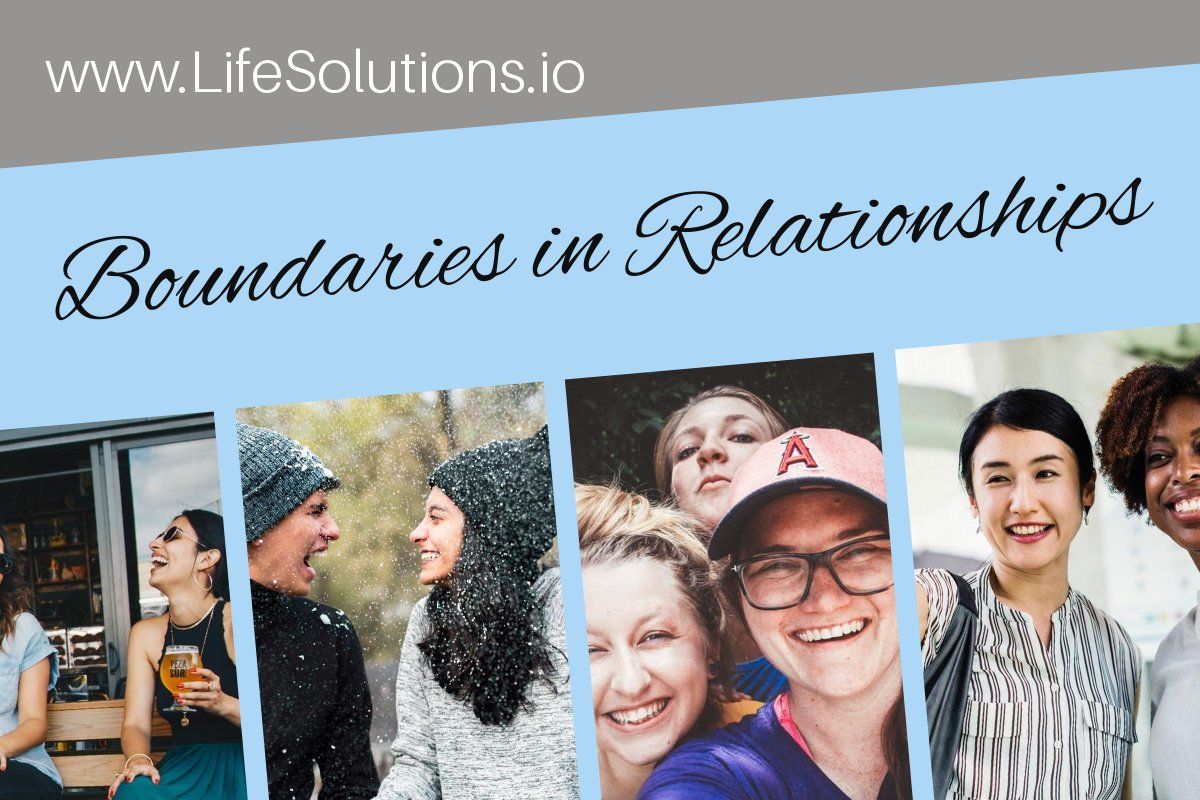15 Signs of Weak Boundaries [Take the Quiz]
Constantly pleasing other people, or trying to save them in one way or another, can fill our lives with much stress and anxiety. At the root of people-pleasing lies a problem with establishing clear boundaries in relationships. It is crucial that we identify where our responsibilities for ourselves start and end, and where it spills over into the lives of others. You may have been so busy with other people’s responsibilities that you have forgotten all about your own personal responsibilities.
Weak or non-existent boundaries in our lives essentially means that we are not being truthful with ourselves or others.
Boundary Quiz
Answer these 15 questions to see if you have healthy boundaries:
- Have you figured out what you truly LOVE (apart from partners or kids), and are you making time for it, regardless of everybody else’s needs and demands on you?
- Do you recognize that your needs are just as important as the needs of your family and other people?
- Can you shut down the voices of guilt and shame, telling you that you are a bad parent or spouse, when you take care of your own needs?
- Do you feel like a failure when your family have to fend for themselves for a change and the house is a mess because you’re doing something you love?
- Can you sleep in when you’re tired, or do you feel guilty?
- Can you ask your family to forgive you after you’ve just lost it, and do you also forgive yourself?
- Can you tell your friend that you really do not feel up to watching her kid again today, even if you don’t have any particular excuse?
- Can you tell your mother that you don’t agree with her and leave it at that?
- Can you say “I don’t feel comfortable about giving you an answer right now, let me get back to you?
- Can you tell someone that you’re angry without profusely apologizing two minutes later?
- Can you change your mind and just say“Hey what’s a mind if you can’t change it” without beating yourself up about all the people you might have disappointed by changing your mind?
- Can you make mistakes and be responsible for it without being overwhelmed by a feeling of guilt, shame, and failure?
- Can you ask for what you want, without feeling guilty for wanting something?
- Can you insist on being taken seriously and treated with respect, or take the necessary steps if it’s not happening?
- Can you stand your ground (not change your mind or trying to fix things) even in the face of someone else’s anger, silence, or disappointment?
Your Boundary Results
If you answered “NO” to many of these questions , your boundaries may need some work, especially if it is starting to affect your life in negative ways.

What are the dangers of weak boundaries?
If we don’t listen to our bodies’ needs, we are violating our own internal boundaries. We may feel sad and depressed because we are not being true to ourselves.
If we focus so much on the needs and happiness of others that we actually abuse our own bodies (by not getting enough sleep, rest, exercise, etc), we may make up for this by “treating” ourselves to junk food, alcohol, drugs, and mind-numbing activities such as watching long hours of TV
Healthy boundaries in relationships consists of giving and receiving. This way we don’t become selfish, but we also do not burn ourselves out by only giving and never receiving.
Healthy boundaries help you find the balance between “holding close and letting go.” People who have been smothered with love or given free reign to do whatever they wanted as children, were never given the guidance and discipline that help them put boundaries on themselves. It affects their relationships. They might be clingy, extremely jealous, and possessive of their husbands, children and friends.
Healthy boundaries help you find the balance between “my responsibility and someone else’s responsibility.” Some people tend to make the problems of others their own, counsel and give advice all the time, or feel responsible for others’ decisions and mistakes. The great amounts of stress and anxiety many times find an outlet in addictive behaviors and substances.
Healthy boundaries help you find the balance between “freedom and control.” People who grew up in a home where they were controlled with an iron fist never forged a sense of self and stayed enmeshed with the parents’ identity. It affects their current relationships. They remain in a place where others have to make decisions for them. They are afraid of conflict or to give their own opinion. They never really found out who they were and struggle with their self image. For example, people sometimes use anorexia as a form of control when they feel they have no control in another areas of their lives.
Healthy boundaries help you find the balance between “saying NO and saying YES.” People who have been abused as children have been robbed from their boundaries and sense of self. It affects their current relationships. They feel ashamed and afraid and tend to isolate themselves from healthy people and thus healthy relationships. They learned at an early age that they don’t have any say in their own lives and that their NO doesn’t mean anything, so they never honor their internal boundaries and never teach others to respect their boundaries. The few people they do let into their lives are usually broken themselves and tend to further abuse them.

What can be done about weak boundaries?
Healthy boundaries does not come naturally, most people have to work at it, but the good news is that everybody can learn how to be assertive (telling people what you want in a nice way)
Do you often try to help or save others? Are you often drawn into their drama or problems? Maybe you find it difficult to say no, or feel guilty when you do?
You are not alone, setting healthy boundaries is a big problem for many people
Please reach out for help in the form of individual or group counseling if this is you. We are running a group at Life Solutions Counseling in Beaverton where you can learn what healthy boundaries look like. You will also practice with others in the group on how to be assertive, stand up for yourself, say no, and teach others to respect your boundaries.
